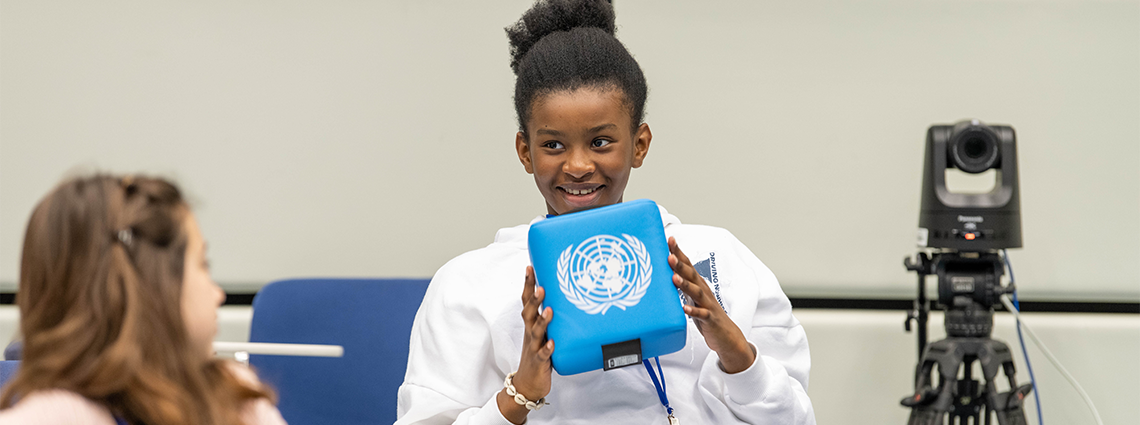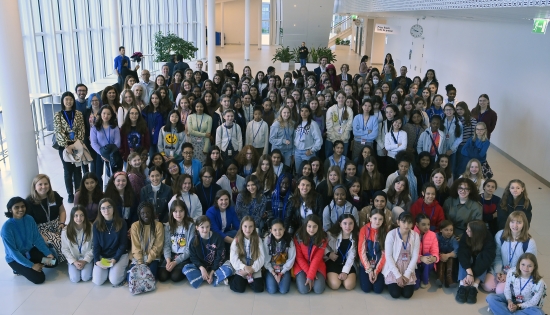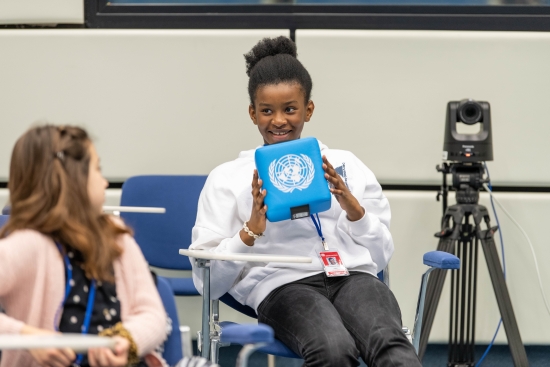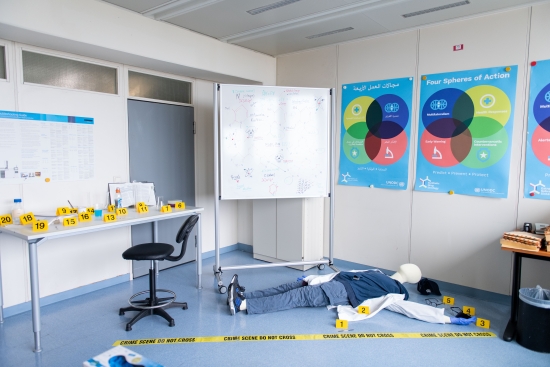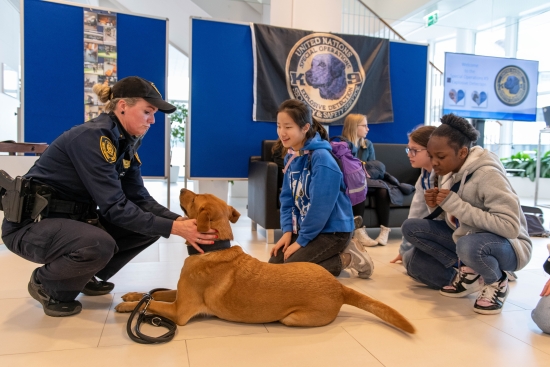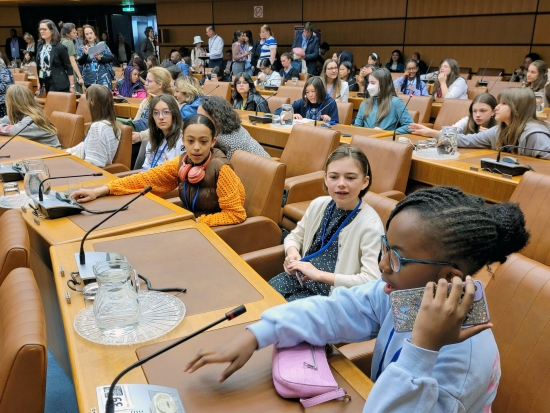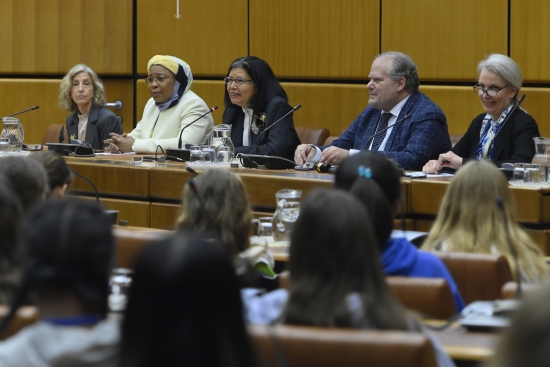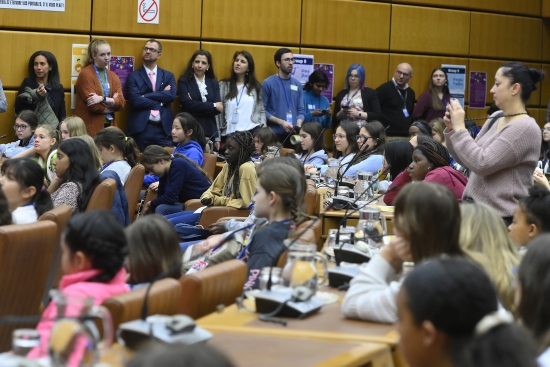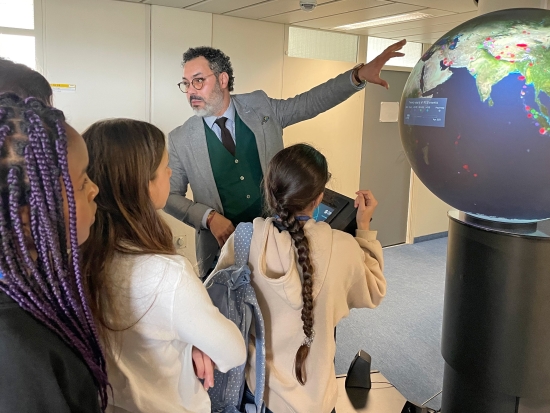Vienna Daughters’ Day: Empowering girls to STEM the tide of gender disparity
The Comprehensive Nuclear-Test-Ban Treaty Organization (CTBTO) and other international organizations participated in Daughters' Day by welcoming over 160 girls aged 11 to 16 to the Vienna International Centre (VIC).
Organised annually, Wiener Töchtertag aims to provide young women with a glimpse into different career paths while highlighting their vital role in shaping the future workforce. At the VIC the focus was on science, technology, engineering, and mathematics (STEM) fields, areas in which women are still underrepresented.
This year, the CTBTO, the International Atomic Energy Agency (IAEA), the United Nations Industrial Development Organization (UNIDO), the United Nations Office on Drugs and Crime (UNODC), and the United Nations Office for Outer Space Affairs (UNOOSA) joined forces to offer a series of interactive sessions and workshops for daughters of staff and Permanent Missions.
The programme covered a diverse range of timely topics, including the science behind detecting nuclear testing, climate change, the investigation of crimes involving radioactive substances, and space technology.
At the start of the day, representatives from each organization addressed a packed conference room filled with eager young women and their parents. Zeinabou Mindaoudou Souley, the Director of the International Data Centre (IDC) Division at the CTBTO was among them.
She conveyed her enthusiasm for speaking to what she described as a “great” audience and explained the aim of the Comprehensive Nuclear-Test-Ban Treaty (CTBT), which is to prohibit nuclear testing. To achieve this, “The CTBTO is in the final stages of establishing a global network called the International Monitoring System (IMS) that uses scientific and technical means to detect nuclear explosions worldwide, whether in the atmosphere, underground, or oceans,” she explained.
Pia Maria Wieninger, a member of the City Council and the State Parliament, represented the City of Vienna at the Daughters’ Day event.
Speaking to the CTBTO, she shared, “I think it is important that you take the girls by their hands and say ‘Look, there are so many different kinds of jobs where you can make contributions and you can change the world’, especially these kinds of jobs at the UN.”
During the CTBTO sessions, the participants learned about the IDC's work, which analyses data collected by the IMS to determine whether an event is a nuclear test explosion.
The workshop was led by Ichrak Ketata, a software engineer, Mario Villagran Herrera, an expert in waveforms, and Yassine Chaari, an operations officer.
While standing in the CTBTO Operations Centre, they demonstrated how IDC analysts can distinguish between various types of events.
They also played audio recordings of natural and artificial events picked up by the IMS's hydroacoustic stations, including tsunamis, iceberg ruptures, passing ships, and whale songs.
Ketata emphasised the importance of ending nuclear test explosions to ensure that “future generations live in a peaceful and secure world.”
Since the CTBT opened for signature, 10 nuclear test events have been announced by three different states, compared with more than 2,000 tests over the five previous decades.
Ketata also highlighted the significance of the IMS's data in advancing research and contributing to the UN's Sustainable Development Goals.
For some of the young women and girls, this was a once-in-a-lifetime opportunity. Lena Mayerl, a 14-year-old who intends to pursue a career in science or chemistry, said, “I believe that this session helped me move a little closer to that goal.” Another participant, Maya Lim, said, "I hope to become a politician someday, and I believe, to do that, we need to know which countries are conducting nuclear weapons tests, as those activities are not good for the environment.”
IDC’s Mario Villagran Herrera stressed the importance of continuing to host and improve events like this, with the hope that attendees may one day become staff members.
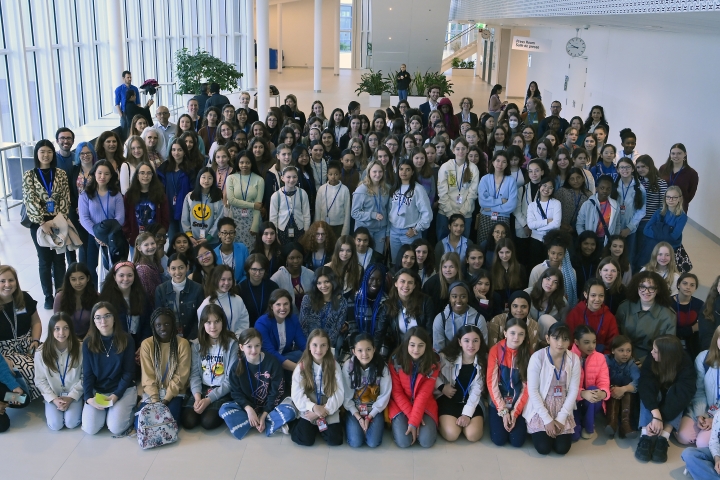
Group photo of participants at VIC Daughters’ Day 2023
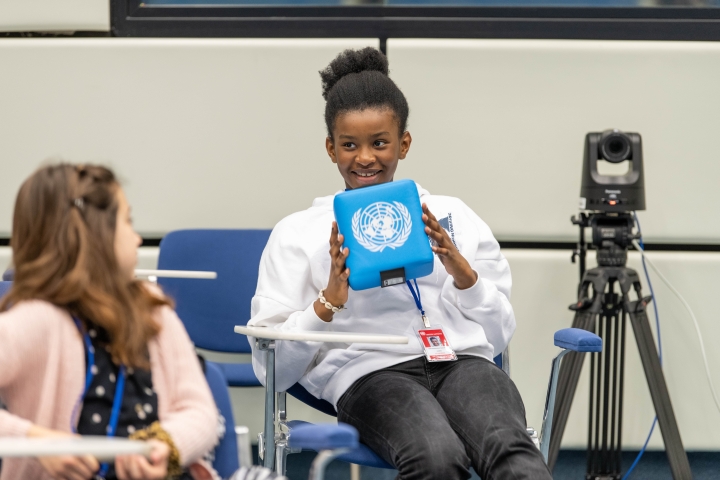
Girls testing audio and video equipment at UNIDO’s session
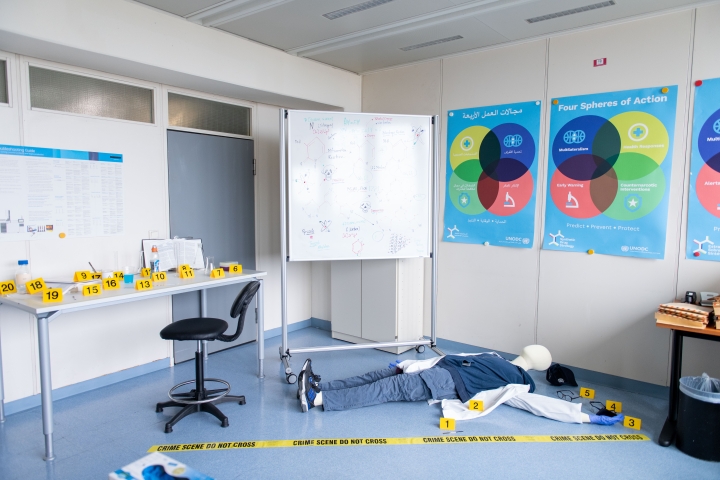
UNODC workshop demonstrating applications of forensics
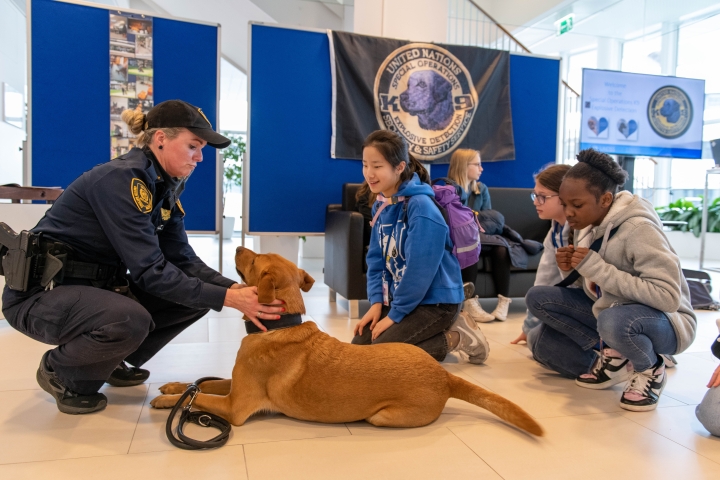
UNOV/UNODC security canine team during Daughters’ Day session
8 May 2023
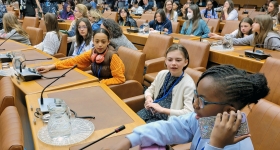
Girls awaiting start of opening session of Daughters’ Day 2023 at Vienna International Centre (VIC)
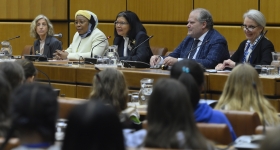
Representatives of international organizations addressing audience during opening session
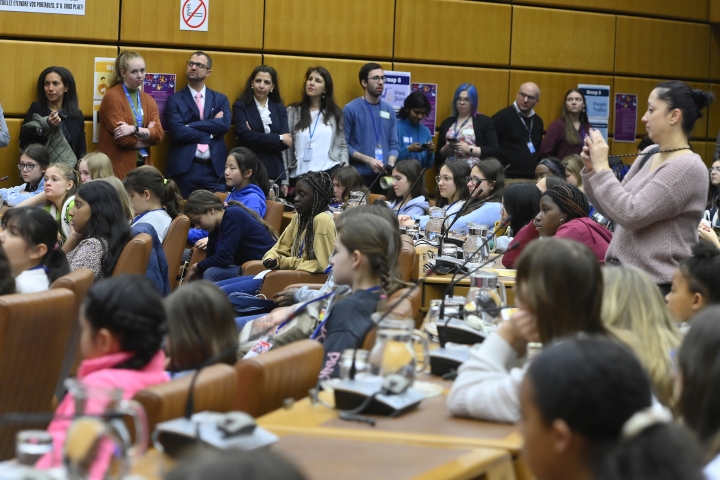
Audience listening to speakers’ statements
Director of International Data Centre (IDC), Zeinabou Mindaoudou Souley delivering opening remarks
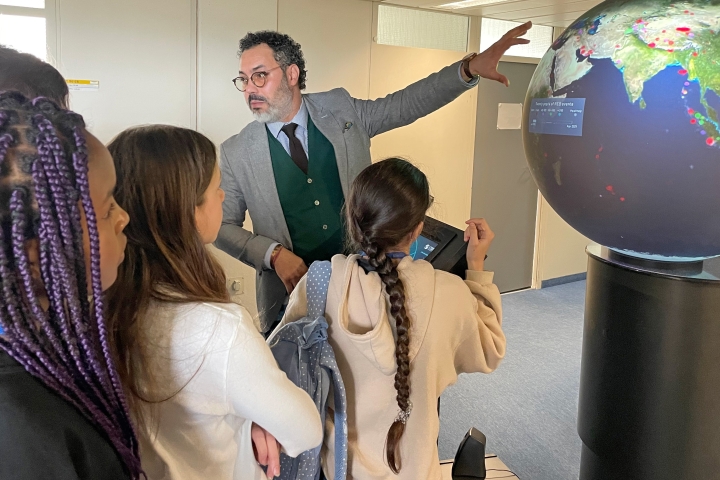
CTBTO Operations Officer Yassine Chaari demonstrating Omniglobe during IDC session
Girls listening to presentation at IDC’s Operations Centre
Software Engineer Ichrak Ketata explaining how CTBTO's monitoring system picks up signs of nuclear testing
